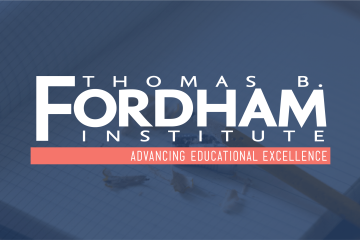Noah Smith, writing in his Substack newsletter last week, argues that Americans are imprudently burying their heads in the sand at the increasing prospect of a global Sino-American clash. Along with Xi Jinping’s massive military and technological buildup, China is fast outpacing the U.S. in training its young people for STEM fields that are vital for national security. If a hot war between the U.S. and China were to erupt, K–12 education policy will be far from top of mind. But that’s the realm where I belong, so let’s consider how America’s schools might better prepare our students to contribute to a victory against China should a collision occur, and how we need to ramp up teaching and learning to meet the moment.
According to Smith, the key problem is that America remains at a peacetime posture, even as China is increasingly on a wartime footing:
As I see it, the mere fact that not many people are talking about the danger [of WWIII] represents evidence that we’re still not taking it seriously. And because Americans aren’t talking about it, our country doesn’t have the urgency required to do something about it. One of our great strengths as a nation has always been that we start shouting about problems before they become severe, giving us time to prepare. Right now, we’re not shouting, so we’re not preparing.
When it comes to schooling, we’re doing plenty of shouting, but not about student achievement and global preparedness. Instead, the debates that dominate our sector today are largely unserious and too often of the navel-gazing variety. Breaking out of the doom loop will require thinking both big and small and getting back at the real problems that face American K–12 education with renewed energy and enthusiasm.
The stakes couldn’t be higher; the Council on Foreign Relations said as much in its report—produced by Joel Klein and Condoleezza Rice—on U.S. Education Reform and National Security back in 2012:
Human capital will determine power in the current century, and the failure to produce that capital will undermine America's security. Large, undereducated swaths of the population damage the ability of the United States to physically defend itself, protect its secure information, conduct diplomacy, and grow its economy.
Indeed, a national commitment to building a much stronger STEM pipeline is required. There’s no better way to do this than by ensuring that every student has a strong foundation in mathematics.
A good place to start would be dusting off the National Math Advisory Panel’s 2008 report, which has gone largely unheeded over the years. Modeled after the National Reading Panel, the math group similarly used the best available evidence to help guide its recommendations, calling for students to be proficient in arithmetic—my third-grade daughter knows her times tables cold—and standard algorithms as part of a coherent progression leading to success in algebra.
The aim is to ensure that all students are well-positioned and well-prepared to access advanced math in high school, which is difficult, if not impossible, if they don’t take Algebra I by eighth grade. As it stands, states are all over the map when it comes to offering the course, but they can flip the script by following North Carolina’s and Texas’s lead:
A new Texas law signed by Abbott [last] May calls for middle school students in the state to be automatically enrolled in advanced math if they score in the top 40 percent of the state’s exam. The new practice will likely increase the number of students ready to enroll in algebra in the eighth grade, especially Black and Latino students who have historically been shut out of advanced math courses. In Dallas ISD, the policy has increased the share of Black sixth graders from 17 percent enrolled in honors math to 43 percent; the percentage of Latino sixth graders from one-third to nearly 60 percent. In high school, this should translate to more Black and Latino students in calculus and statistics.
Because every state is required to assess student academic progress annually through eighth grade, it would be relatively simple for state lawmakers to require schools and districts to leverage their standardized math testing data for automatic enrollment decisions.
Some states are exploring other promising practices to boost math performance, but strong and strategic state leadership will be required to keep these efforts moving forward. The lack of seriousness from Washington, D.C., makes this all the more urgent. At the same time, state leaders need to insist upon academic excellence and to stop sugarcoating the setbacks that students have suffered post-pandemic.
Along with a renewed focus on math and the STEM pipeline, vocational training and workforce readiness must also move to center stage because—for example—the need to modernize the Navy will require both manpower and brainpower. Strengthening education in foreign languages may also be part of the war effort, though the provision of Chinese language classes has at times been met, understandably so, with skepticism.
Not so long ago, K–12 schools were improving at a steady, if modest, clip, especially in math, but we’ve since lost our way. As a country, we need to double down on world-class teaching and learning and expand access to advanced mathematics for as many students as possible. At the risk of being trite, this could be a real Sputnik moment. There’s no time to waste in regaining our bearings as the emerging anti-democratic alliance led by China grows ever more emboldened.




